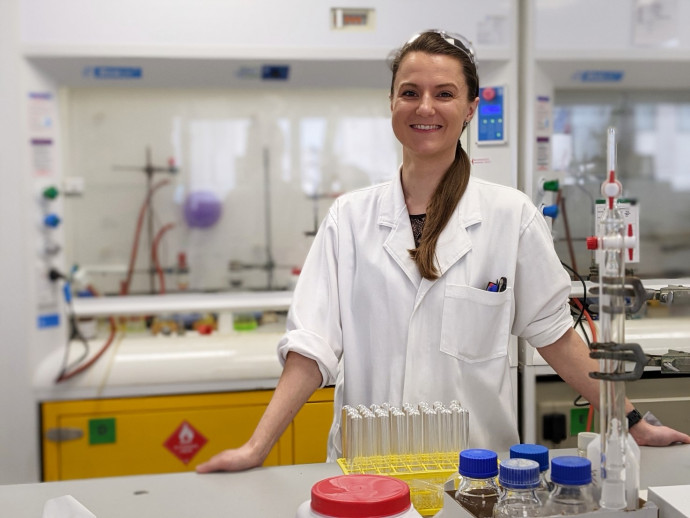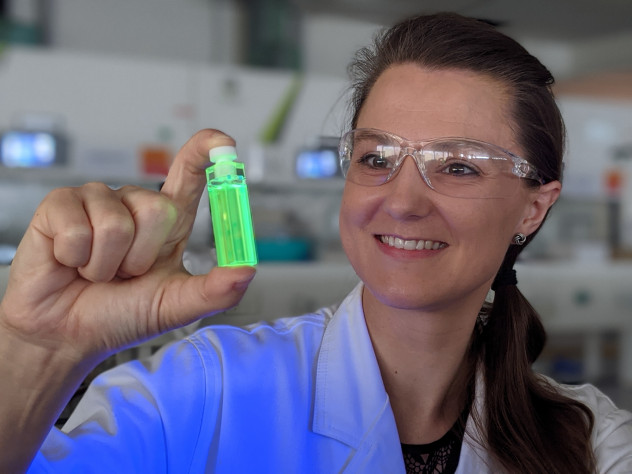Using light to track and target drug delivery

Dr Cassandra Fleming, Auckland University of Technology, will develop new light-responsive drug delivery systems to control when and where drugs target their therapeutic activity
One of the major challenges in medicinal chemistry is reducing the toxic side effects caused by poor selectivity of drugs. Among efforts to improve chemotherapy treatments and achieve personalised medicine regimens, a promising approach is the development of targeted drug delivery systems. Effective targeted drug delivery systems enable the therapeutic agent to be delivered, not only to the desired cell, but also to a specific sub-compartment of the cell to enable maximum potency. Advancing the field of targeted drug delivery is strongly dependent on being able to track where the drug is delivered, and to activate it when it has reached the desired location. An innovative solution to both these challenges is to use light as a means to both track where the drug builds up and trigger the release of the drug within the desired location.

Dr Fleming with a solution of a fluorescent molecule that will be used to track the drug delivery system in cells. Photo supplied
With her Marsden Fund Fast-Start grant, Dr Fleming will develop new ‘light-responsive’ targeted drug delivery systems to control exactly when and where drugs are activated within cells. Molecules which target specific sub-compartments within cells will be linked with fluorescent groups that then form a ‘cage’ around the drug, masking its activity. The fluorescent group will enable the drug to be tracked to its target using light. When it reaches the desired target within a cell, the fluorescent cage is then unlocked with light, activating the drug. Light responsive systems have the potential to be much smaller and simpler than current drug delivery systems.
Dr Fleming will focus on an important drug target for Alzheimer’s disease, an enzyme called GSK-3, whose role in different sub-compartments of the cell is poorly understood. Results arising from this project will provide unique molecular tools to study the mode of action of drugs in individual cellular compartments.
